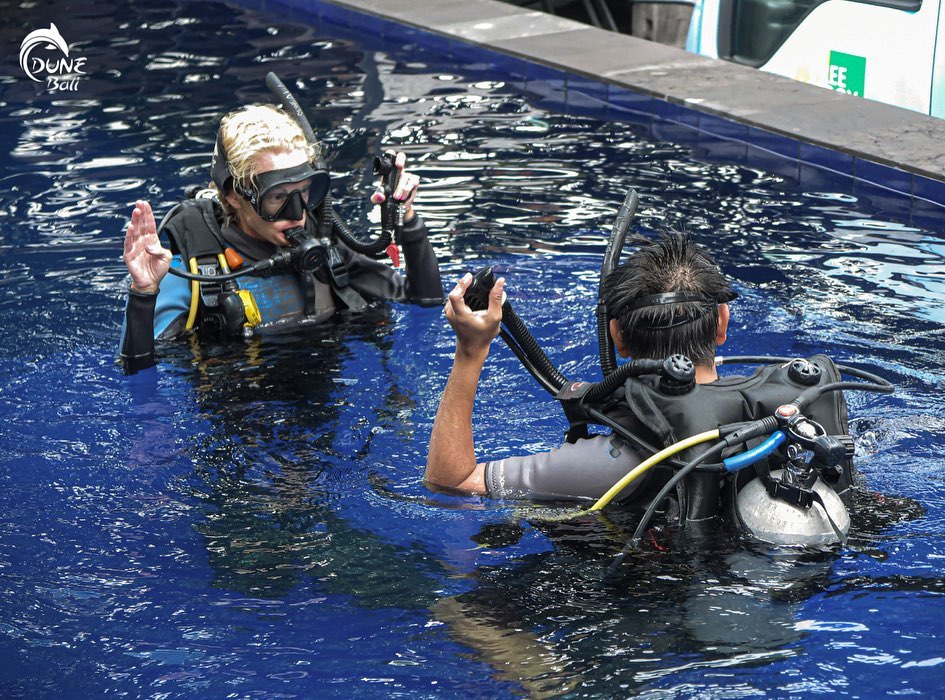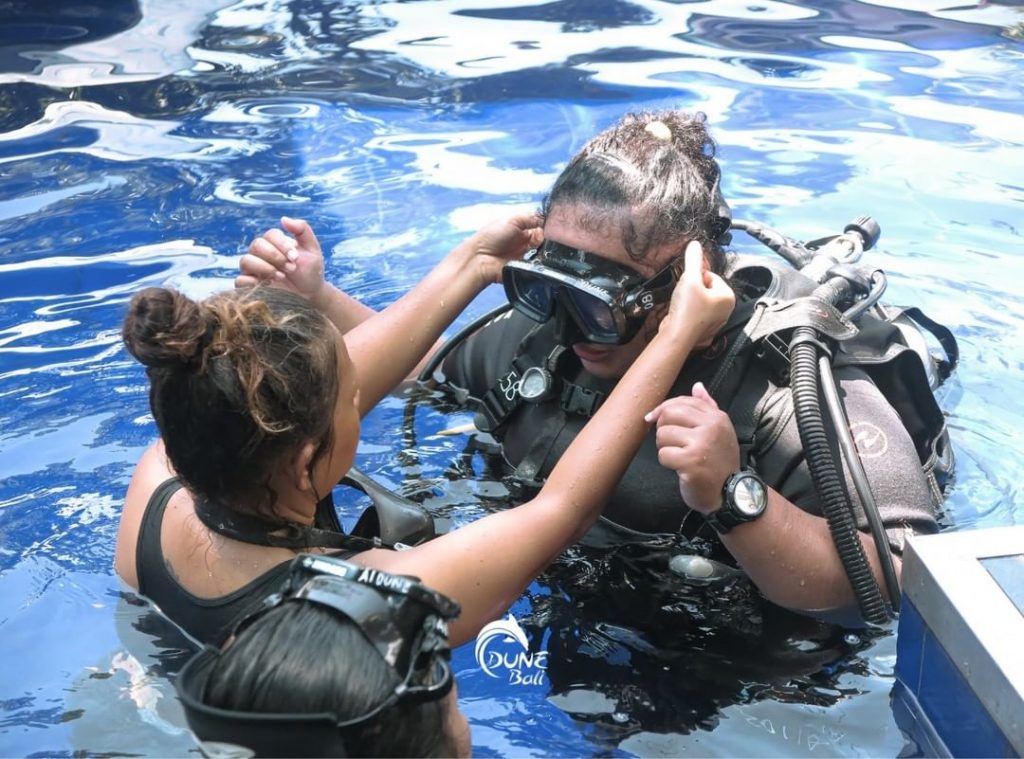
The notion of scuba diving or snorkelling — a predominantly visual hobby — can be a little intimidating for people whose eyesight requires corrective procedures. Diver safety also necessitates keeping a close check on your buddy, location, and gauges. However, a lack of 20/20 vision is not an impediment to diving, as there are numerous alternatives available to enable participation despite a variety of vision difficulties. This is your scuba diving course for beginners for today; how can a visually impaired people improve their vision underwater?
A Basic Scuba Diving Course for Beginners: Everything Underwater is Magnified
Because objects in water are naturally amplified by 33 percent, many scuba divers and snorkelers with modest vision impairment don’t need to take any corrective action. Divers with more complicated remedial needs, on the other hand, will find this insufficient. If remedial action is required, there are numerous underwater methods for adjusting for vision issues, resulting in safer and more pleasurable dives.
Can You Wear Eyeglasses When Diving in Bali?
A diver cannot wear his or her regular eyeglasses underwater because the earpieces of the glasses prevent the mask skirt from sealing on the diver’s face. Even if a scuba mask could seal over spectacles, the pressure of the nose piece and lenses of a diver’s glasses might cause them to grind uncomfortably into the diver’s face. Many divers wear masks with prescription lenses instead of eyeglasses.
More Diving Stories:
Best Dive Sites in Bali for Artificial Reefs
Can You Wear Contact Lenses Underwater?
You might feel worried about the safety of wearing contact lenses underwater. The truth is, it’s actually safe! Wearing contact lenses, just like you would on land, is one of the simplest ways to deal with bad eyesight. Not all contact lenses, however, are suitable for diving. Even when using appropriate soft contact lenses, certain care should be taken to avoid eye irritation and contact loss.
Soft contact lenses, rather than hard contact lenses, are recommended for scuba diving by the Divers Alert Network (DAN). Contact Lenses, Hard or Gas Permeable (GP lenses). Because of the pressure, gas permeable lenses can ‘dig’ into the eyes below certain depths. Hard lenses may suction to the eye as a result of the increased pressure, causing pain or discomfort. Hard contact lenses tend to dry out wearers’ eyes more, causing irritation and redness.
While hard lenses do not enable the nitrogen absorbed by the eye while diving to escape; soft contact lenses do. Soft contact lenses, on the other hand, can accumulate waterborne organisms and get contaminated, resulting in eye infections. If you’re diving with contact lenses behind your mask, make sure you blink frequently. Excessive gazing might cause bubbles to form behind your lenses, causing slight pain and momentary vision blurring. If you lose a contact underwater, make sure you have a spare set of contacts (or glasses) on hand.
Our scuba diving tips for beginners: When wearing soft contact lenses underwater, it’s also a good idea to keep your eyes closed while performing any skills that require flooding or mask removal.
Bring Lubrication Drops to the Dive Trip
Soft contact lens wearers frequently experience dryness as a result of diving; bringing lubricating drops to the site for usage before and after diving is a smart idea. Divers should consider utilising disposable contacts for live-aboard vacations so that they can use fresh ones each day by rinsing lenses in fresh saline solution between dives to reduce discomfort from residual salt water.
More Diving Stories:
First Time in Liveaboard Scuba Diving Vacations for Beginners
Prescription Masks

Masks with prescription lenses are available from most scuba diving equipment manufacturers. However, people with imperfect vision might not find this during their scuba diving course for beginners. The stock lenses on some non-prescription masks can be removed and replaced with prescription lenses. When diving with a prescription mask, divers must remember to carry their regular eyeglasses to the dive site so that they can see before and after the dive. He should bring a second prescription mask with him on long dive trips as a backup. Prescription masks are not readily available in many distant regions. An entire dive holiday might be ruined if a prescription mask is lost.